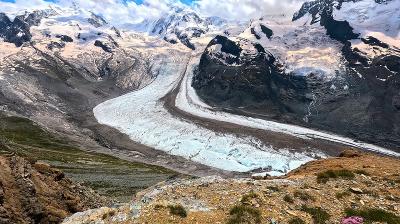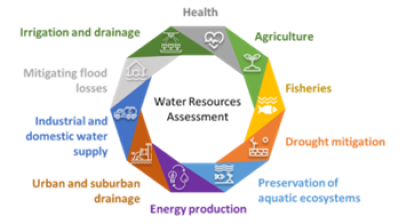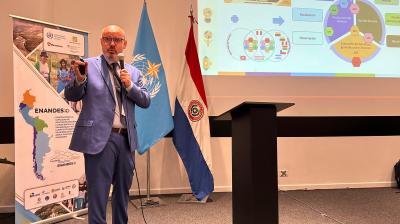UN summit on groundwater "makes the invisible visible”
The 2022 campaign “Groundwater: making the invisible visible” has wrapped up with a UN-Water Summit on Groundwater, highlighting the importance of better monitoring and management of this vital resource.
Groundwater accounts for 99% of all liquid freshwater on Earth. It provides half of the volume of water withdrawn for domestic use by the global population, including the drinking water for many people in rural areas, and around 25% of all water used for irrigation.
«Sustainable management of groundwater resources is critical to reduce the impacts of climate and weather-induced disaster risks like droughts on food security, economies, society and ecosystems,” WMO Secretary-General Prof. Petteri Taalas said in a video message to the summit in Paris 7-8 December.
“Better hydrological monitoring and forecasting of the groundwater systems is critical to better understand and incorporate groundwater in Earth systems models and, consequently, develop climate-smart solutions and enhance climate change resilience and security,” he said.
WMO’s recently published State of Global Water Resources report seeks to provide authoritative information which underpins management of global freshwater resources, including groundwater, in an era of growing demand and limited supplies.
The Ground Water summit is co-coordinated by UNESCO and the International Groundwater Resources Assessment Centre (IGRAC), on behalf of UN-Water. Its main messages will be conveyed to the United Nations 2023 Water Conference next March.

“The important messages around data and information need to be brought and discussed at the UN 2023 Water Conference and carried to COP28 and other conferences in order to bring groundwater to where it belongs: To the centre of the debate on climate change processes – including climate change mitigation and adaptation, and also as a key factor for the achievement of SDG 6 on water and sanitation,” said Prof. Taalas.
The WMO Hydrological Observing System WHOS is one of a number of practical tools which supports modeling and warning systems of the whole hydrological system including groundwater, he said.
“Such enablers are critical as climate change is affecting the availability, quality and quantity of water for billions of people and impact ecosystems in multiple ways. The hydrological changes induced by climate change are adding challenges to the sustainable management of all water resources, which are already under severe pressure in many regions of the world overextraction and pollution where more than 3 billion live in severely water stressed conditions. Groundwater resources are directly affected, » said Prof Taalas.
WMO led the session on Information and Data and the challenges of data collection, data quality, access and sharing of data were discussed. Understand the groundwater resources in its variability in space and time is critical for making sustainable groundwater management part of the solution to address the challenges posed by climate change and other environmental and societal changes.











